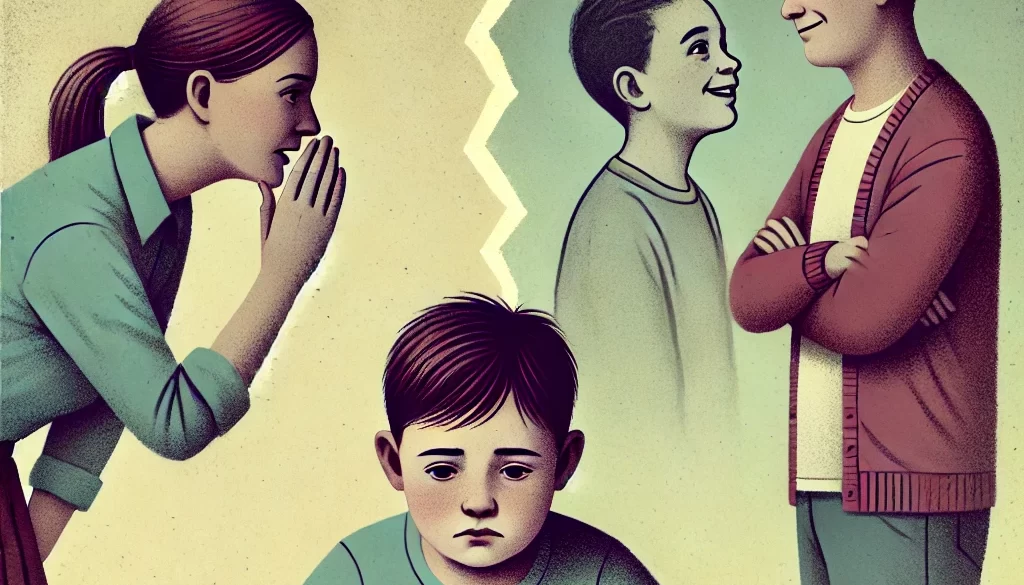How Do I Know if My Kids Are Being Alienated?
Parental alienation can be challenging to identify, as it often involves subtle psychological manipulation by one parent to damage the child’s relationship with the other parent. If you suspect your children are being alienated from you, it’s important to recognize the signs and take steps to address the situation. Early intervention is crucial to protecting your relationship with your children and safeguarding their emotional well-being.
What Is Parental Alienation?
Parental alienation occurs when one parent uses various tactics to turn the child against the other parent. These tactics may include spreading false or negative narratives, limiting contact, and manipulating the child’s emotions to create a sense of mistrust or hostility toward the targeted parent. Alienation can be intentional or unintentional, but its effects on the child and their relationship with the targeted parent are often profound and long-lasting.
Signs That Your Children May Be Experiencing Alienation
Children who are being alienated often exhibit specific behaviors and attitudes that may seem out of character. Here are some signs to watch for:
1. Sudden and Unexplained Hostility
If your children begin expressing anger, hostility, or disrespect toward you without clear justification, this may indicate alienation. Their complaints might mirror those of the alienating parent rather than reflecting their own experiences.
2. Refusal to Spend Time with You
Alienated children may resist or refuse to spend time with you, even if they previously enjoyed your company. This resistance often arises from manipulation rather than genuine feelings.
3. Parroting Negative Statements
If your children repeat negative comments about you that seem beyond their understanding or vocabulary, they may be echoing the alienating parent’s words rather than expressing their own thoughts.
4. Lack of Ambivalence
Healthy relationships involve a mix of positive and negative feelings, but alienated children may show extreme polarization. They may view the alienating parent as entirely good and you as entirely bad, without acknowledging any nuances.
5. Guilt or Anxiety About Expressing Love
Alienated children often feel torn between their loyalty to the alienating parent and their desire to maintain a relationship with you. They may seem anxious or guilty about showing affection or enjoying time with you.
6. Reluctance to Share Information
Children who are being alienated may avoid sharing details about their lives or their relationship with the other parent. This secrecy often stems from fear of disapproval or repercussions from the alienating parent.
7. Exaggerated Allegations
Alienated children may make exaggerated or baseless accusations about you, often mirroring claims made by the alienating parent. These accusations may be completely out of line with your history or behavior.
8. Dismissal of Positive Experiences
Even if you’ve shared meaningful and positive moments with your children, alienated children may dismiss or downplay these experiences, insisting they were never happy with you.
9. Sudden Changes in Behavior
If your children’s attitude toward you changes dramatically after spending time with the other parent, it could be a sign of alienation. This is especially concerning if the change occurs without any triggering event or conflict between you and the child.
How to Confirm Your Concerns
If you notice any of these signs, it’s important to approach the situation carefully. Here are steps to confirm and address your concerns:
1. Reflect on Your Interactions
Consider whether the issues might stem from misunderstandings or conflicts in your relationship with your children. Alienation is distinct from estrangement, which occurs due to actual harm or neglect.
2. Document Changes and Behaviors
Keep a record of incidents that seem related to alienation, including specific behaviors, comments, and changes in your children’s attitude or relationship with you.
3. Speak with Your Children
Gently ask your children about their feelings and experiences without pressuring them. Listen carefully to what they say and avoid criticizing the other parent, as this can worsen the situation.
4. Seek Professional Input
A family therapist or child psychologist can help determine whether alienation is occurring and provide guidance on addressing it. Look for professionals experienced in parental alienation.
5. Consult Your Attorney
If you believe the alienation is intentional and harmful, consult with your attorney about legal options to protect your parental rights and your relationship with your children.
How to Respond to Parental Alienation
Responding to alienation requires patience, resilience, and a focus on your children’s well-being. Here are some steps you can take:
1. Remain Calm and Compassionate
Alienation thrives on conflict. Show your children that you are a loving and supportive parent, even if they are resistant or distant.
2. Avoid Retaliation
Do not engage in similar tactics, such as badmouthing the other parent. This can reinforce the alienation and damage your credibility with your children.
3. Rebuild Trust
Focus on creating positive experiences with your children, demonstrating your care and consistency over time. Trust is often the foundation for overcoming alienation.
4. Involve a Neutral Third Party
Therapists, mediators, or family counselors can provide a safe space for your children to express their feelings and help address the alienation.
5. Advocate for Your Parental Rights
If the alienation escalates, legal intervention may be necessary. Courts can order therapy, adjust custody arrangements, or impose consequences on the alienating parent.
Conclusion
Recognizing parental alienation is the first step in addressing it. By understanding the signs and taking proactive steps, you can work to protect your relationship with your children and support their emotional well-being. Remember that alienation can be overcome with patience, persistence, and the right support system. Your children deserve a healthy, loving relationship with both parents, free from manipulation and conflict.
I’m Randy Morano—a father, author, and staunch advocate for parental alienation awareness. My journey through the depths of parental alienation has transformed me into a passionate advocate, dedicated to shedding light on this overlooked form of emotional abuse.
As a survivor, I understand the profound impact of parental alienation firsthand. Through my writing and advocacy efforts, I aim to raise awareness, empower others, and provide support to families in need. Join me in the fight for change and hope.



